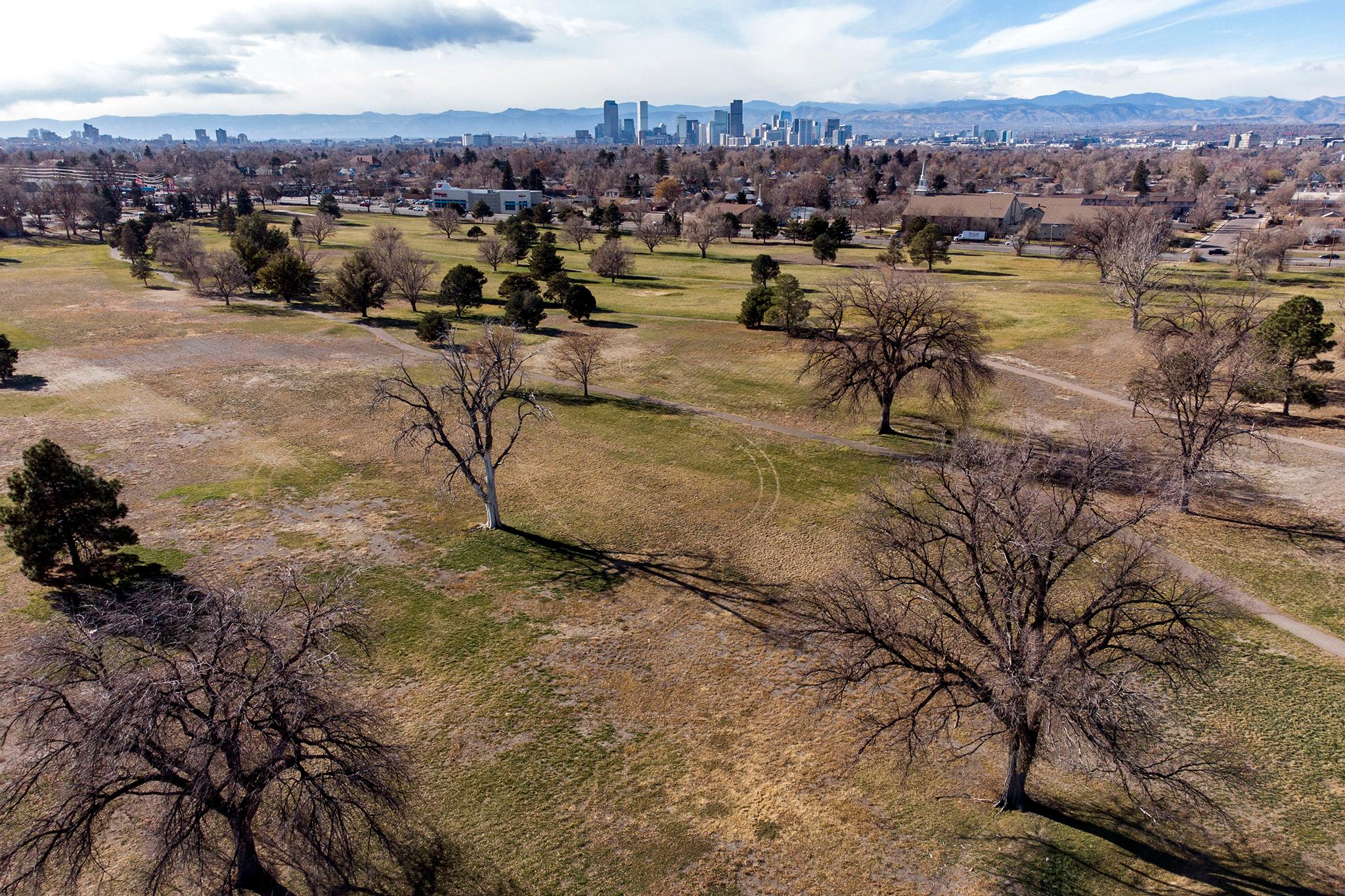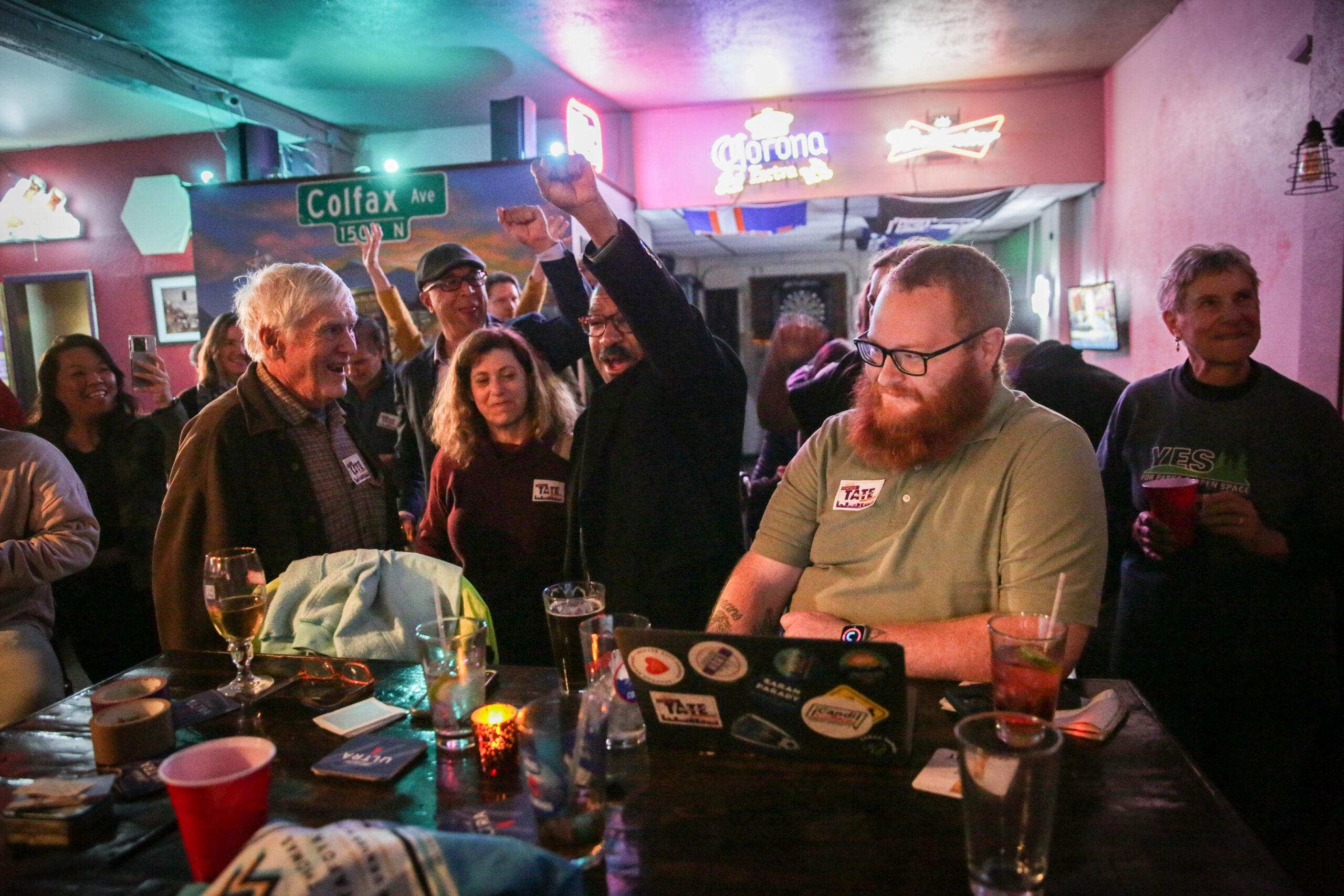The Park Hill Golf Course redevelopment has been defeated.
Westside Investment Partners' and Mayor Michael Hancock's administration's attempt to bring housing, retail and park space to 155 acres of Northeast Park Hill -- the former Park Hill Golf Course site -- has been shot down by the voters.
"Because the Park Hill easement is unambiguous, the land will return to a privately-owned, regulation-length 18-hole golf course," said Bill Rigler, a spokesperson for the developers and the Yes on 2O campaign. "The site will immediately be closed to public use or access, with no housing, community grocery store, or public parks allowed on this site, in accordance with the will of the voters."
Opponents of the developers celebrated at a victory party at Mozart's Lounge in Mayfair.
"The people of Denver have beat the developers for the third time," Tate said. "Maybe now somebody will pay attention to what the people want in this city."

The latest results show the anti-2O campaign with a considerable lead of 60% to 40%.
Harry Doby, treasurer of the No on 2O campaign, said he felt relief and joy, but that the work is not done.
"We need to work together, the community and the city, the mayor, City Council on a sensible future for this land. The community needs all the things that Westside was promising. Absolutely. We agree. It's just that they always were focused on the wrong location. The land literally across the street is available and in some places started development. So it's always been obvious to us, at least, that as development happens next door, across the street, we need more green space, because with more families coming in, the park system is already overtaxed."
Few on either side of this fight said they wanted the land to be used for golf. But golf is how Westside plans to use it now that development isn't an option. In fact, the company has entertained contracting with TopGolf, a late-night golf-themed entertainment concept with loud music and bright lights.
Opponents of development view their victory as a David and Goliath fight against a wealthy Glendale developer who outspent the community nine-to-one with a self-funded campaign.
They say the land could be turned into a massive regional park. They had a landscape architect draw up plans. But how that park will happen is unclear, since the developer does not plan to sell the Park Hill Golf Course to the city. The city has no immediate plans to buy it, and there is no money in the budget to build a park there.
Both of the leading mayoral candidates former State Sen. Mike Johnston and former Denver Metro Chamber of Commerce head Kelly Brough -- whom former Denver Mayor Wellington Webb described as corporate candidates -- are supporters of the development. Neither has pushed for the city to buy the land and fund a park. Who has the political will to get that done has yet to be seen.
"The Park Hill Golf Course will forever be a case study in missed opportunities," said campaign spokesperson Rigler. "With historically low turnout, Denver has rejected its single best opportunity to build new affordable housing and create new public parks. Thousands of Denverites who urgently need more affordable housing are now at even greater risk of displacement."
The fight over a conservation easement protecting 155 acres of Northeast Park Hill, the former Park Hill Golf Course, has been one of the blistering issues of the 2023 general election.
Both sides pitched the land as a site to solve some of Denver's biggest problems: housing affordability, a food desert, equitable business opportunity and global warming.
The developer and land owner Westside Investment Partners planned to build a massive mixed-use project on the site. The company had made a series of promises to the city and the community through a development agreement and a community benefits agreement.
City Council rezoned the land and created municipal districts, hoping voters would lift the easement.

The developer would have created between 2,500 and 3,100 units of housing, 25% of which would be preserved as income-restricted for 99 years. Brothers Redevelopment and Habitat for Humanity had plans for projects on the site.
There would have been room for retail and land reserved for 10 years for a grocery store -- should one decide to come to the neighborhood. There would also be community spaces and land donated plus funding for Denver's fourth-largest park.
At least 1,000 trees would have been planted on the site and there would have been pollinator gardens brought in -- part of a collaboration with the Butterfly Pavilion.
Though those plans are now scrapped, this fight is probably not over.
Opponents of the project are already suing Westside Investment Partners and the City of Denver for their involvement in the project. Their hope is that they can convince a judge to block future attempts at development.
There's also a chance that the developer could renegotiate a deal with the community and City Council and bring the issue back to voters in November -- though that is not guaranteed.
This article has been updated with reaction from proponents and opponents to Referred Question 2O.














